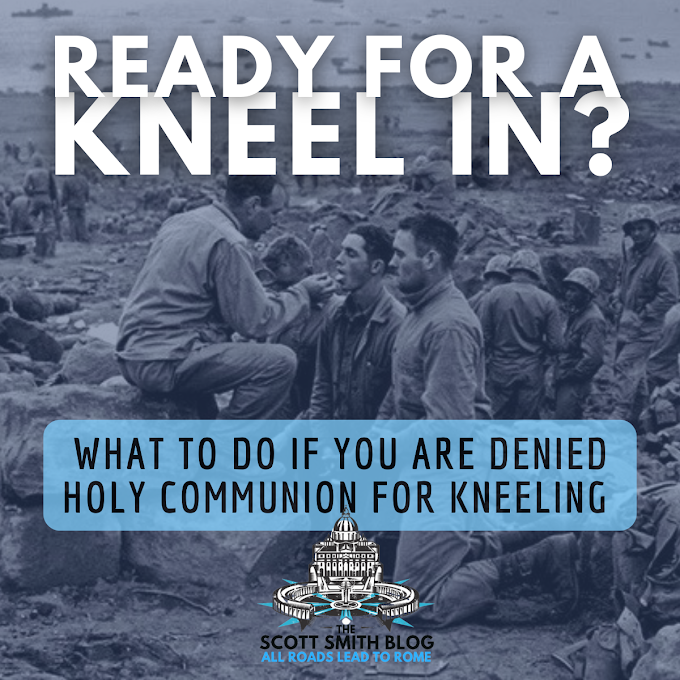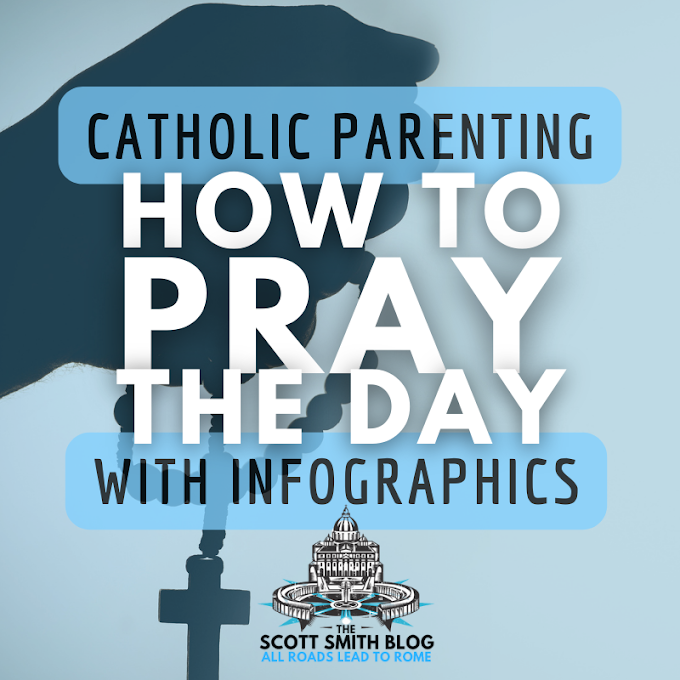Have you heard about the recent survey of Catholics conducted by the Pew Research Center? Pew found that only 26% of Catholics under age 40 believe in the Real Presence of Christ in the Holy Eucharist. Here's an article about it from the National Catholic Register.
Here's one inspiring under-40 Catholic that absolutely believed in the Real Presence of Christ in the Eucharist. This series of articles on the Real Presence will give you a few dozen reasons why you should, too.
See below for an amazing story about Flannery O'Connor and her love for the Eucharist ...
Plus, here's a few more under-40 Catholics providing their reasons for not just believing in the Real Presence, but being blown away by this awesome reality. Basically, here's a brain (and heart) dump of all the most amazing things we know about the Real Presence. Enjoy!
Hit play below if you would rather listen to all this on the Catholic Nerds Podcast. Here's the Apple/iTunes link to the podcast, too ... and Podbean.
- Pew Survey of Catholics
- This article >> Flannery O'Connor and her amazing quote on the Real Presence
- Jesus on the Real Presence - Gospel of John, Chapter 6
- Early Church Fathers on the Real Presence - St. Justin Martyr and St. Ignatius of Antioch
- Protestants and the Real Presence - Martin Luther argues from the Real Presence against Ulrich Zwingli
Who was Flannery O'Connor?
Flannery O'Connor was one of the most highly regarded authors of the Twentieth Century, especially Catholic authors. She wrote a number of deceptively intricate short stories, the most famous of which is probably "A Good Man is Hard to Find."Southern Gothic: The Grotesque and The Freaks
Her style of writing is often referred to as Southern Gothic. While Edgar Allan Poe might have been the godfather of this style, William Faulkner is the father of Southern Gothic.A sense of evil lurks in background in these novels. O'Connor's own sense of Catholic morality was foundational to her writing. O'Connor argued that her Catholic theology helped her identify the "grotesque" and the "freaks":
Whenever I’m asked why Southern writers particularly have a penchant for writing about freaks, I say it is because we are still able to recognize one. To be able to recognize a freak, you have to have some conception of the whole man, and in the South the general conception of man is still, in the main, theological. That is a large statement, and it is dangerous to make it, for almost anything you say about Southern belief can be denied in the next breath with equal propriety. But approaching the subject from the standpoint of the writer, I think it is safe to say that while the South is hardly Christ-centered, it is most certainly Christ-haunted. The Southerner, who isn’t convinced of it, is very much afraid that he may have been formed in the image and likeness of God. Ghosts can be very fierce and instructive. They cast strange shadows, particularly in our literature. In any case, it is when the freak can be sensed as a figure for our essential displacement that he attains some depth in literature.
Amazing quote, right? A lot to chew on, so to speak. This is also a great example of her writing and profoundly brilliant insights. As O'Connor says, "Ghosts can be very fierce and instructive" ... especially heaven's ghosts, like the author herself.
Hang on. There's still a better quote to come regarding the Eucharist ...
Flannery O'Connor's Daily Schedule: Battling Lupus with the Mass
In 1952, O'Connor was diagnosed with lupus and managed to live seven years longer than expected. Her last years were actually very productive, writing at her home in family farm, Andalusia, in Milledgeville, Georgia.
Wondering how she managed to live so long and productively? Her daily routine was to attend daily Mass, write in the morning, and spend the rest of the day recuperating and reading.
Treat yourself to a collection of Flannery O'Connor's short stories :)
Back to Flannery O'Connor and the Eucharist ...
Flannery O'Connor and the Real Presence
Earlier in her career, O'Connor was popular among other young authors, including Truman Capote (she was a great influence on In Cold Blood), Harper Lee, and Mary McCarthy.
After a long dinner party that stretched deep into the night, in O'Connor's own words:
"Well, toward morning the conversation turned on the Eucharist, which I, being the Catholic, was obviously supposed to defend. [Mary McCarthy] said when she was a child and received the Host, she thought of it as the Holy Ghost, He being the 'most portable' person of the Trinity; now she thought of it as a symbol and implied that it was a pretty good one. I then said, in a very shaky voice, 'Well, if it's a symbol, to hell with it.' That was all the defense I was capable of but I realize now that this is all I will ever be able to say about it, outside of a story, except that it is the center of existence for me; all the rest of life is expendable."
Pretty great quote, right? If the Eucharist is just a symbol, then "to hell with it".
So what exactly were Jesus' words about the Real Presence? Check out next week's article for a thorough examination of John 6, the Bread of Life Discourse.












0 Comments